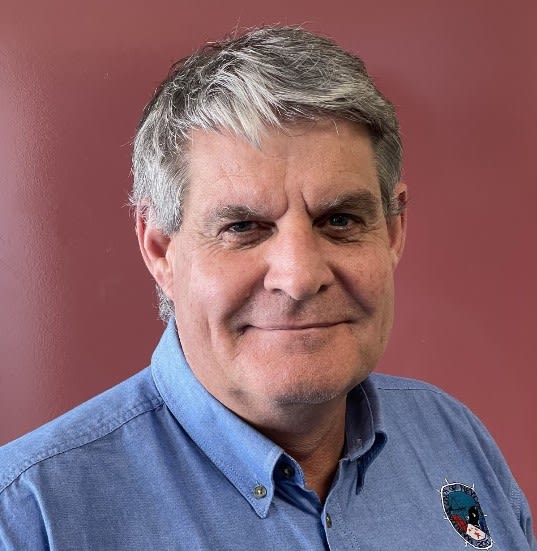
A five year legal battle has resulted in a deal offering ground-breaking improvements in terms and conditions for waterfront workers
It’s taken four rulings from the Employment Relations Authority, three judgments of the Employment Court and years of stop-start bargaining, but George Lye finally has enough stability in his working hours to reliably pick his son up from school, take his car to the mechanic, and make a medical appointment.
Tauranga-based Lye is a digger driver with nationwide stevedoring company ISO Ltd, a subsidiary of ASX-listed multinational QUBE Holdings. Now 31, Lye started on the wharf as a 17 year old, and initially accepted as normal that his employment contract required him to be available for work 24/7, 365 days a year. Back then, the wages were better than most of his mates were getting in other industries, and his colleagues on the waterfront faced the same requirements to be constantly available for work.
But over time, he felt that ISO’s requirement for total flexibility was imposing an unreasonable toll on his life. Under the company’s employment contract, he and other workers didn’t know from one day to the next when they would be working. Lye would receive a text by 11am telling him if he had to be at work at 3.15 the next morning for a 12 hour shift. Having been told he had to work, that shift could then be cancelled at two hours notice, without compensation.
Although he was guaranteed 60 hours work a fortnight, there was no payment for making himself available at ISO’s beck and call. Nor was there any entitlement to regular hours or shifts.
Lye says the job made it difficult for him to be a reliable father. With a son (now 7) from a previous relationship, he couldn’t commit to doing the school pick-up or building a deeper relationship with his boy by having him to stay on regular days, because he didn’t know when he would have to work. It was impossible to plan anything – he couldn’t commit to family events, or regular involvement in sport. If he needed to get to the doctor or service his car he had to book annual leave well in advance so that he could make the appointment.
ISO insisted this level of flexibility was essential to its ability meet the demands of ship movements, cargo flows, weather and berth availability. According to the Maritime Union of New Zealand (MUNZ), hyper-flexible work arrangements like those required by ISO became the norm on the waterfront following deregulation of the industry in 1989 and the hobbling of collective bargaining following the 1991 Employment Contracts Act.
A breakthrough deal
But from next week, Lye – with his partner Mana Tamatea, who also works for ISO on the Tauranga waterfront – will work under a new collective employment agreement that provides a 12 months of certainty as to when he will and won’t be required to work.
The deal includes a six-week revolving roster setting out guaranteed work days (four consecutive days of 12 hour shifts) and guaranteed days off (two consecutive days), as well as a meaty 10 – 30 percent increase in pay rates, depending on the task and skill-level required of the role.
“It means I’ll be able to plan my life,” Lye told Newsroom. “I’ll will be able to say [to my son’s mother], ‘I’ve got these days off, I can pick [my son] up after school and drop him off’...That will make her life easier too. I was never able to do that before.” Father and son will be able to plan fishing and camping trips and sports fixtures. “None of that was even dreamable before,” says Lye.
It’s been a long and bruising slog to get to this point. In 2017 Lye bailed out of ISO’s in-house union, the Amalgamated Stevedores’ Union (ASU), and joined MUNZ. He and nine others, with MUNZ’s backing, filed a law suit in the Employment Relations Authority seeking a declaration that ISO’s requirement that they make themselves permanently available without compensation was unlawful.
Years in the courts
The legal challenge was anchored in a 2016 employment law reform introduced by the National-led government of John Key, which aimed to tighten up on zero-hours contracts that had become notorious in the hospitality and fast food sectors. The change meant employers could no longer demand workers be available for work without paying “reasonable compensation” for that availability, as well as providing some guaranteed hours of work.
In 2018 the Employment Relations Authority upheld the challenge brought by Lye and the other workers, ruling that the ISO contract breached the zero-hours law (section 67D of the Employment Relations Act).
But ISO dragged its feet for the next four years, despite a series of emphatic subsequent rulings against it from both the authority and the court. As the court said in one of its three judgments on the matter: “ISO has refused to budge from the position it took nearly three years ago, even though that has been shown to be flawed.” In another of its decisions, the court observed that ISO “persists with this method of allocating work for a competitive advantage.”
By the middle of this year, the parties were still at legal loggerheads: MUNZ and Lye on one side; ISO on the other. By this time, the nine other workers who were initially party to the litigation alongside Lye had withdrawn from the action or left the company.
In June this year the Employment Relations Authority upheld a personal grievance case brought by Lye against ISO. The company was ordered to pay $22,500 in compensation for failing to compensate him for requiring him to be permanently available for work, and $15,000 for humiliation and loss of dignity suffered as a result of his inability to plan any aspect of his life with certainty.
During the years of litigation there were multiple failed attempts to negotiate a collective agreement between MUNZ and ISO. Eventually MUNZ went to the Employment Relations Authority last month with a request to have a collective employment agreement fixed – a rarely-used measure that can be invoked if there has been a breach of good faith and all other means of reaching a settlement have been exhausted.
The turning point
But in the end the authority didn’t need to impose a deal; MUNZ and ISO got there voluntarily, through negotiation. Having been at each other's throats for years, the two sides reached the new collective agreement, with both agreeing that its terms and conditions were “ground-breaking”, not just for ISO but for a waterfront industry that’s struggling to recruit and retain workers in the Covid-era labour market.
As well as providing predictable work hours and better wages, the agreement includes better management of fatigue – identified as a significant risk factor in the industry’s poor health and safety record – by incorporating improved downtime between shifts.
The turning point in the dispute appears to have come as a result of the intervention of ISO’s chief executive, Paul Cameron, a 35-year veteran of the stevedoring and logistics sector who himself started his career as a wharf hand.
Cameron says the only winners in the protracted dispute have been the lawyers, and after nearly three years of Covid disruptions that have savaged productivity and triggered a massive bleed of workers, a durable solution was needed.

When Cameron and MUNZ national secretary Craig Harrison finally sat down and talked about the dispute, they discovered a mutual respect.
Cameron told Newsroom that he found Harrison to be “an astute character, a watersider, and not a bad rooster”.
And in Harrison’s mind, Cameron deserves credit for “going out on a limb” to settle the years of litigation and deliver a contract that he says will rewrite the norms of work on the waterfront.
ISO’s Cameron says the need for better terms and conditions for workers had become critical, with around 25 percent of workers leaving the industry since Covid due to labour market competition from other sectors that don’t have 24/7 operational requirements.
He estimates ISO’s productivity has declined by around 20 percent as a result of not being able to retain and attract enough skilled workers.
The waterfront has “probably become one of the most unattractive job propositions in New Zealand”, says Cameron. In the past, wages in the industry carried a premium which ensured a good supply of new workers coming in, but that premium has been “eroded through competition for skilled and quality staff” from other industries.
He says the industry has operated on a “race to the bottom” competitive model, which everyone from stevedoring companies to shipping lines and exporters have been party to. “We’ve all played this game for many years,” he says, but there’s now an urgent need for longer term investment.
Cameron thinks domestic exporters realise the game is up, too, having paid the price through demurrage charges when ships have been queued up at ports waiting for a struggling stevedoring sector to load and unload cargo. “It’s a cost everyone in the industry has to wear, otherwise we won’t have an industry. Our supply chain will continue to spiral down and costs will continue to go up for exporters and importers.”
The new employment agreement sets a “fantastic platform to recruit for future people that want to work in the waterfront, and that’s what we need to be able to compete with outside industries”, he says.
Wide industry implications
MUNZ also thinks it creates a huge opportunity to win members from the Amalgamated Stevedores Union, whose officials are paid by ISO and which is disparagingly regarded within the labour movement as a ‘yellow’ (employer-controlled) union.
The ASU has around 700-800 ISO workers as members. MUNZ currently has just two - George Lye and Mana Tamatea.
But Harrison says the phones have been running hot from workers over the past couple of days as word has gone out about the new collective agreement achieved as a result of Lye’s dogged legal battle.
The MUNZ national council has been meeting this week, and regional representatives will be returning to their ports with copies of the deal and a recruitment pitch to ISO workers: join MUNZ and get the benefit of the terms and conditions set out in the new collective agreement.
In the meantime, the ASU is bargaining with ISO for a new collective with similar terms as the MUNZ deal. Its representative, Ray Sayed, didn’t respond to Newsroom’s request for comment about the bargaining.
Cameron says he’s happy to work with MUNZ, ASU or any other union, and is neutral as to which one workers belong to.
But MUNZ also has larger ambitions. Harrison says the union plans to use the new ISO collective as the basis for a fair pay agreement that would cover the entire waterfront sector, which would force other stevedoring companies to provide the same rates, conditions and stability in hours of work. The controversial Fair Pay Agreements legislation is expected to be in force by the end of this year.
Cameron declined to express an opinion on the possibility of a fair pay agreement, describing himself as “on the fence” on the matter.
In the meantime, George Lye – who hadn’t previously been a union activist - is the hero of the hour within MUNZ. Harrison says Lye’s determination to stick with the fight for a better deal that will improve the lives of other workers is “the very definition of unionism”, and last night he was to receive a MUNZ ‘solidarity award’ in recognition of his efforts.
As Harrison puts it, “it’s like the Victoria Cross...I’ve been in the union since 1990, and he’d be the one person I could really say I could give the award to. It will change the whole industry.”







